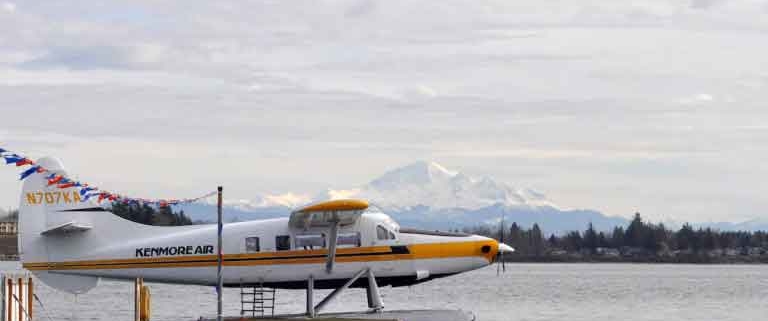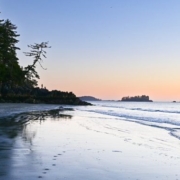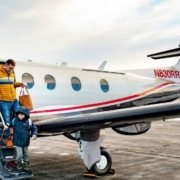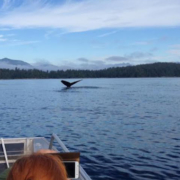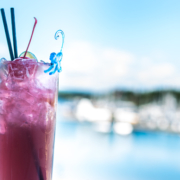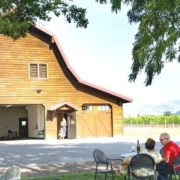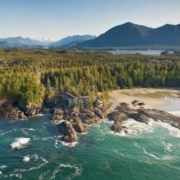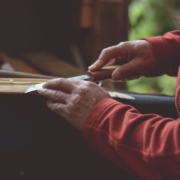Semiahmoo Resort’s Executive Chef Bruno Feldeisen
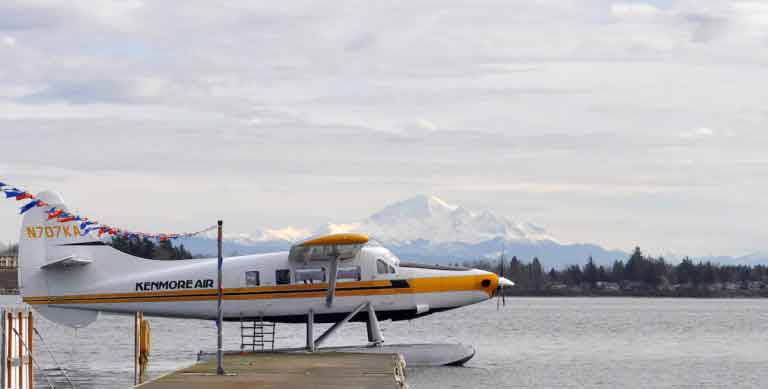
As though sliced from a time when folks wandered just to wander and sat just to sit, the Semiahmoo Resort maintains an idyllic sense of quiet. Less than two watery miles from Canada and a few hundred feet from Blaine, Washington, the recently restored destination sits at the end of the Semiahmoo Spit.
From bird watching and biking to kayaking and kite flying, the shorelines here welcome family gatherings, romantic getaways, and solo retreats alike. The resort is home to a spa and two golf courses. At night, bonfires are lit on the beach.
And while all of those things are wonderful – I mean out of this world amazing status – I want to give you a peek inside the kitchen. Executive chef Bruno Feldeisen recently joined the Semiahmoo team. His cuisine is as exceptionally full flavored as his passion for the land.
Here are some of my favorite snippets from our recent chat.
Mikaela: You’re originally from a small French town. How do your roots influence your cooking today?
Chef Bruno: The area I’m from isn’t well known for its cuisine. The economy is driven by farmers and ranchers. Growing up there gave me a deep connection to the land, which has really shaped my approach here.
I make it a priority to buy as much of the products we use from local farmers as possible. This not only insures we’re using the freshest ingredients we can, it allows us to support our local farmers and preserve the land. Farmers take care of the land like no one else. That’s essential to keeping this place so beautiful.
I also make it a priority not to waste anything. Growing up we learned to appreciate the entire plant and animal. We’re always looking to give items a second life.
Mikaela: Did that desire to support local farmers influence your decision to come to Semiahmoo?
Chef Bruno: Definitely. If you work in a big city, you don’t have the same connection to the land. You’re not as close to the people who are growing and raising your food.
For example, oysters are tagged at the time they come out of the water. We obviously buy our oysters locally. But locally here means just down the road. It’s not uncommon oysters arrive at our kitchen door within minutes of being pulled from the water.
We have a saying here about our food, ‘Local. Seasonal. Authentic.’ And that’s really what you’re going to get. We don’t serve strawberries during the winter because strawberries aren’t in season around here.
Mikaela: What’s the process been like to find local farmers and ranchers?
Chef Bruno: Fun. Before I started working here, I didn’t know there was this kind of quality and variety available in the region. I thought it all came from California. But the farmers around here are amazing.
The big difference between Washington and California is the size. Washington is still driven by small farms and co-ops. It’s a totally different dynamic than in California. Our farmers have a deeper respect for the seasons. And, that’s something our diners really enjoy.
There is one farm in particular with which I have developed a close relationship – Growing Veterans. They teach (US) veterans to become farmers. It’s incredible. Buying food through them ensures we get good local products, pay a reasonable price, and support our community.
Mikaela: You offer cooking classes regularly. Do you spend time discussing where food comes from?
Chef Bruno: Yes. We started these classes when I came onboard. Every class is centered around a local product. When did a class on Foie gras, we found a local farmer who does Foie gras.
We also focus on how to know if a product is good, how to know if it is fresh, and how to prepare it.
Mikaela: So, does that mean classes are hands on?
Chef Bruno: Only if you want them to be. We hold our cooking classes at the bar in the Packers Oyster Bar. Everyone has the option of grabbing and apron and coming behind the counter to help. But, pitching in isn’t mandatory.
Want to take a class or simply sample chef Bruno’s cuisine? Plan your trip today.

